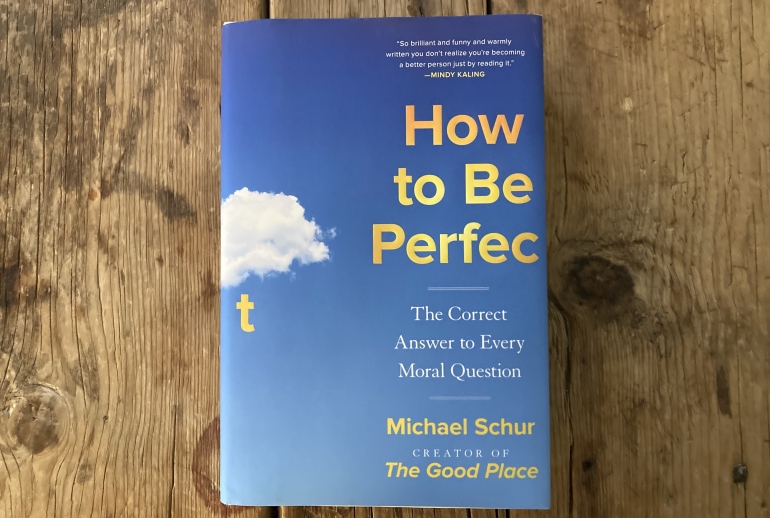A slightly modified version of this sermon was preached at Resurrection Anglican on October 23, 2022.
A reading from the prophet Jeremiah
A reading from the Gospel of Luke
I’d like to begin with prayer.
Heavenly Father, we bow in your presence. May your Word be our delight, your Spirit our teacher, and your greater glory our supreme concern, through Jesus Christ our Lord. Amen.
Our Gospel reading this morning is a parable, a story told by Jesus. He told lots of them, as you probably know. He used them not merely to illustrate things he was teaching but to help us live into the things he was saying. Stories work differently than statements or propositions, even when they address the same themes. Good stories draw us in, so that as we embody the ideas and characters, identifying with them in our hearts and imaginations, they work on us in a life-giving and transformative way.
So, please look with me at our text from the Gospel of Luke. It divides itself into three simple sections. First, in verse 9 we are told why Jesus told the parable. Then in verses 10-13 is the story itself. And finally, in verse 14, Jesus provides a practical application of what he intends for all of us who are his followers. The reason for the story, the parable itself, and finally how Jesus says we should think and live as a result. Let’s reflect on each part in turn.
First, the reason Jesus told the parable. Verse 9. “He… told this parable to some who trusted in themselves that they were righteous and treated others with contempt.”
Imagine that. People convinced they are so right that they hold anyone who disagrees with them in contempt. Like the ancient Hebrew Teacher said, “There is nothing new under the sun.”
When I saw this text in the lectionary reading for today, I thought this would be an easy sermon to prepare and preach. After all, regardless of your political convictions, it’s clear America has a problem with contempt. Neighbors don’t just disagree, they see those who disagree as dangerous, evil, contemptible. I imagined this sermon would be about American society.
Tish Harrison Warren, for example, an Anglican priest who writes a column for The New York Times, published an essay on May 15, 2022, called, “America Has a Scorn Problem.” Warren called attention to “a Scientific American report on political polarization [that] noted that Americans increasingly hold ‘a basic abhorrence for their opponents—an ‘othering’ in which a group conceives of its rivals as wholly alien in every way.’ It continues, ‘This toxic form of polarization has fundamentally altered political discourse, public civility and even the way politicians govern.’”
Or consider this from the Christian conservative political commentator, David French, in an essay on J. D. Vance, who said his supporters knew “the right people to hate.” French argues that the difficulty is not that Christians might honestly disagree over policy. “The real crisis,” French insists, “is instead a crisis of the heart. Our orthodoxy is undermined by our actions, and our actions spring forth from the deepest parts of our being. At a time of rising antipathy, a Christian political community should blaze forth with a radiant countercultural embrace of kindness and grace. Instead, all too many of us have forgotten a fundamental truth. There are no ‘right people’ to hate.”
In these columns, Warren and French are holding up a biblical ethical position in contrast to a virtual maelstrom of incivility and unkindness in American society. As a society, we have a problem with contempt. And there is much here that would worthy preaching about and reflecting on. If you love America as I do, this is a real and vital concern.
But as I began to prepare this sermon, I tried to live into this parable. I realized that I am easily frustrated when people insist on believing unbelievable things, how they seem impervious to reason and refuse to face facts. I realized that at moments like that I tend to think of them as idiots and am glad I’m not like them. I realized that it feels good and righteous to be right. And so, I discovered that before this parable was about American society, it was about me.
Let’s look at the parable itself (v. 10-14).
The story Jesus told is very simple. Two people, he said, a Pharisee and a tax-collector, went to the Temple to pray. These two categories—Pharisee and tax-collector—would have immediately caught the attention of his listeners. Both were well known and both evoked strong feelings in response. It might be like today saying a Ukrainian and a Russian went to pray, or a Republican and a Democrat. But those don’t actually work as modern equivalents for what Pharisees and tax-collectors represented in the first century.
The Pharisees were a religious movement in Judaism that believed that if Israel was zealous for God, he would rescue them from Roman occupation and restore Israel’s dignity among the nations. They took the law and the prophets of the Old Testament seriously. They tried their best to live in accordance with them and were convinced that Israel’s woes were due to her lack of zeal. In Paul: A Biography (2018, p. 13), the Anglican biblical scholar, N. T. Wright describes St. Paul’s family of origin as Pharisees. “They lived with a fierce, joyful strictness in obedience to the ancestral traditions. They did their best to urge other Jews to do the same.” In Jesus’ encounters with the Pharisees, he saw them as tending towards legalism, which is a common error among those who emphasize right living. Like many Christians today, they believed that the right laws instituted by the right people could solve the moral and social problems of their day. But although right living is admirable, the law does not cure what’s broken in the world or in our hearts.
Tax-collectors were Israelites who worked for the Romans, specifically in assessing, and collecting taxes to pass on to the Roman authorities. As you might guess this is not merely like working for the IRS because it involved colluding with an oppressive, foreign, and authoritarian empire that had stripped Israel’s independence and sense of dignity as a nation. Many saw tax-collectors as traitors and treated them as social outcasts. On the other hand, tax-collectors saw that since Rome’s rule was firmly in place and that Israel had no possibility of breaking free, they might as well live in the reality they found themselves and accept the best job available to them. There were advantages to working for the Rome, even if it’s ethically dubious.
So, Jesus said, let me tell you a parable. A Pharisee and a tax-collector went to the Temple to pray. And it’s here that the story gets really interesting. Verse 11. “The Pharisee,” Jesus says, “standing by himself, prayed thus: ‘God, I thank you that I am not like other men, extortioners, unjust, adulterers, or even like this tax collector. I fast twice a week; I give tithes of all that I get.’”
Let me make two observations. First, this is a list that would make any parent proud. Look at it again. We want our children to be unique and stand out from the crowd, to not extort others, or be unjust, to not sleep with someone else’s spouse, or to collude with evil oppressors, and to practice healthy spiritual disciplines like fasting and tithing. Whatever else we may think about the Pharisee, he’s been making some very good choices. The character in this parable is living a very admirable life.
The second observation, of course, is that the Pharisee isn’t just reviewing his own life and behavior, he’s comparing himself with others. And judging them in the process. But still, when he compares himself and judges them, it’s because he’s right, or at least more right than they are.
Then in his story Jesus turns to the other man praying at the Temple. Verse 13. “But the tax collector,” Jesus says, “standing far off, would not even lift up his eyes to heaven, but beat his breast, saying, ‘God, be merciful to me, a sinner!’”
Again, two observations. First, though we can accept his assessment that he is a sinner he surely must have done a few things right. Perhaps he became a tax-collector not because he loves Rome and hates Israel—I mean, he’s praying in the Temple, and that must count for something. Perhaps he became a tax-collector because at the time he had limited options and needed to provide for his family. Besides, if he didn’t sign the contract, someone else would so what’s the point? Besides, being a tax-collector means he can perhaps work quietly behind the scenes to make the system more fair, just, and equitable. Let’s not be too quick to judge.
A second observation is that this is a very simple prayer, not very eloquent, and truth be told, quite unlike the way I usually pray. For one thing, I figure I don’t have to stand far off because I’m part of God’s family, accepted in Christ, and so can be right up there, if not at the front, at least solidly in the middle. For another, I’ve lived a fairly decent and upright life, and practice spiritual disciplines. Whenever we hear a story we should ask who we identify with, and I don’t know about you, but I identify with the Pharisee.
And that’s why this sermon isn’t primarily about American society. It’s about me. I’m the Pharisee in this story, and it’s not pretty. I’d like to think I’m a recovering Pharisee, but some days I’m not even certain of that.
I don’t believe that the right laws instituted by the right people will solve the moral, civil, and social problems of our day. I’m convinced that any political philosophy based on that notion is doomed to failure. But there are ways in which legalism filters into my thinking and living. I have strong convictions about how my grown children should manage their finances, for example. And occasionally I have made very wise, though unsolicited suggestions to them as to how often they should go out to eat. And though many of you won’t believe this, there is a right way to load a dishwasher.
But kidding aside, in this parable, I’m the Pharisee.
So, we’ve heard why Jesus told the parable (some people think they are right and hold those who disagree in contempt) and the parable itself. Two men went to the Temple and prayed. And finally…
Jesus applies the parable—verse 14.
“I tell you,” Jesus says, “this man”—the tax-collector—“went down to his house justified, rather than the other. For everyone who exalts himself will be humbled, but the one who humbles himself will be exalted.”
There are two parts to Jesus’ statement here and both are significant. The first is that the man who was right and living an admirable life and making good choices will not be justified before God. He leaves the Temple unchanged, and worse, unacceptable to God. If that doesn’t seem like much, it’s because we aren’t taking Jesus’s words seriously. Being justified in everyone’s eyes except God’s isn’t second prize, it’s failure.
The second of Jesus’s statements reveals the problem with being right, namely, that when we are right it’s very hard to be humble. When we are right, we feel exalted, as better than those who are wrong and who won’t face facts or listen to reason. But humility is precisely what Jesus as our Lord expects of us.
Now, I realize that this teaching on humility has been taken to some absurd extremes. Like when someone plays a lovely piece of music on the piano and when complimented, says, “Oh, it wasn’t me, it was God.” To which the appropriate response is, “No it wasn’t. Don’t be ridiculous. God didn’t play, that was you. We watched you do it. You did well.” That’s not what Jesus is talking about. He makes that plain in the reason he gives for telling the story. Verse 9, again. “He told this parable to some who trusted in themselves that they were righteous, and treated others with contempt.”
If we take this Scripture seriously, the question we need to ask ourselves is obvious. Who do I hold in contempt? Who do I look down on for disagreeing with me, for making poor choices, for living a life that’s less than admirable, for supporting the wrong candidates, for worshipping false gods, for responding to vaccinations incorrectly, for believing lies, for taking society in the wrong direction, for twisting the truth? Who do I hold in quiet disdain, who do I look down on because I am right, and they are, well, to use my preferred term, an idiot?
I find it easy to duck this question. For one thing, contempt is, the dictionary says, “to consider something worthless” and wrong ideas certainly are worthless so that isn’t a problem. So, rationalize my contempt. The problem is the dictionary also says contempt is “to disregard or despise what should be taken into account,” which reminds me I must not be dismissive of any person because they happen to be wrong. They bear the image and likeness of God and so are worthy of the dignity and significance that comes with that high value. To make matters worse, I am a person of ideas. I love philosophy and theology. Because I love ideas, I find it distasteful when otherwise rational people seem unwilling to think or see clearly. We are living in a culture of lies. This is not unique in history, by the way, but it is our moment of history and therein is my problem. I don’t try to be disdainful or contemptuous, it is merely my prevailing sin, and the wickedness in my heart is fed every time I doom-scroll or check my news feed.
Over the years I’ve been occasionally asked whether I am a Christian primarily because religion is comforting in a difficult world. I usually respond by asking how seriously they’ve read the Bible. I don’t know about you, but I don’t find this parable and teaching of Jesus all that comforting; I find it uncomfortably convicting. I like being right, but the problem with being right is that it’s difficult not to look down on all the people who are wrong. You’d be amazed, and again, I may be the only one, but I’ve even developed skill in looking humble and accepting while seething with hubris and disdain inside.
What Jesus is calling for is not weakness but true strength of character. To be able to be ourselves and pursue and serve the truth without comparing ourselves to others, to be right without looking down on those who are wrong, to refrain from judging in a fragmented world where social media works to enlarge disagreement, encourage dislike, and enhance rage rather than civility and personal sacrifice for the sake of our neighbor and the common good.
There is a deeper side to all of this because we are touching on the nature of virtue and what it means to flourish as a person created in God’s image. “Pride makes us artificial,” Thomas Merton said, “and humility makes us real.” Humility is life-giving while pride is corrosive, and contempt is always destructive and hurtful, not just for the one held in contempt but for the one who is contemptuous. “It was pride that changed angels into devils,” St. Augustine wrote, “it is humility that makes men and women as angels.”
May it be so with us. And as it appears to be in the lovely photo accompanying this post of the young woman praying so intently she seems oblivious to everything else.
In the name of the Father, the Son, and the Holy Spirit. Amen.
Photo credit: Binti Malu (https://www.pexels.com/photo/photo-of-child-praying-2927676/)



